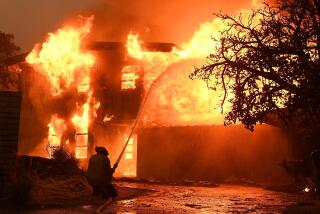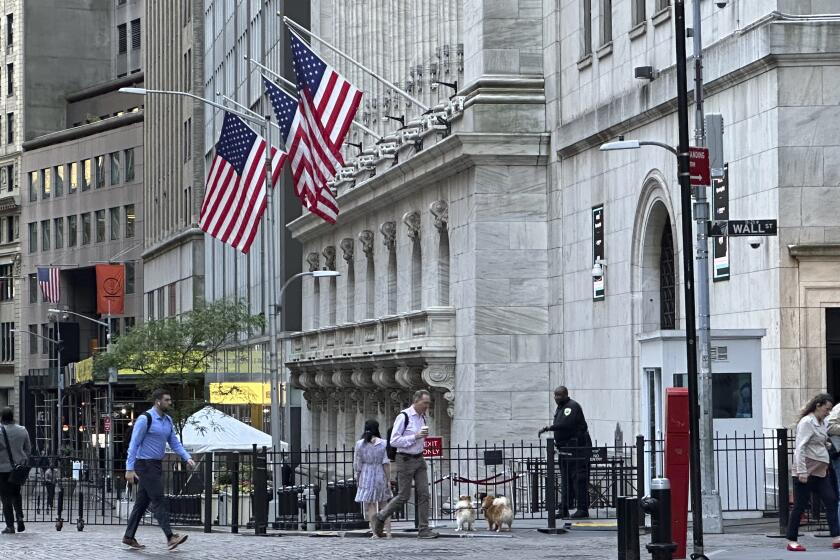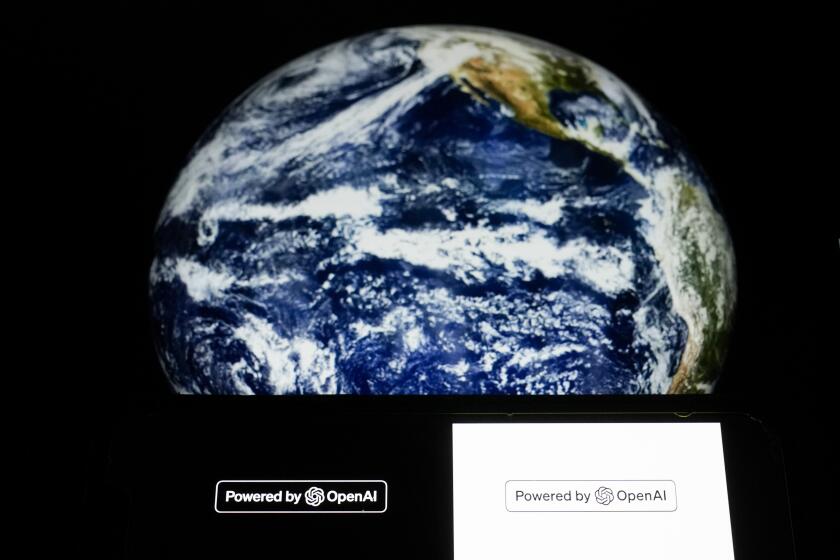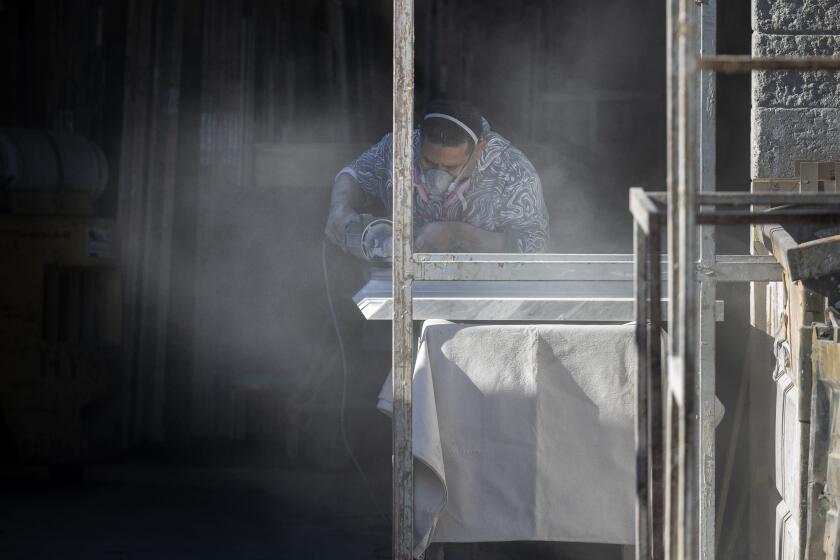Oil Soars to Record $59.37
Worries about future oil supplies sent crude prices roaring to a record $59.37 a barrel Monday, while retail gasoline prices ticked upward in California after nine straight weeks of declines.
The crude oil futures contract for July delivery jumped as high as $59.52 a barrel during trading on the New York Mercantile Exchange, but then eased a bit to close 90 cents above Friday’s finish. It marked the fourth straight gain in the cost of the U.S. benchmark light sweet crude.
“The market just keeps marching forward,” said Steven Bellino of commodities brokerage Fimat USA Inc. “It’s pretty astonishing.”
Rising oil costs have dragged pump prices along for the ride. Oil accounts for about half the price of a gallon of gasoline, and the fuel-price outlook worsens with each upward movement in crude oil costs.
In California, the statewide average pump price rose 1.9 cents to $2.352 for a gallon of self-serve regular Monday, according to a weekly price survey by the Energy Information Administration, an arm of the Energy Department. The latest move is the first increase since California’s average hit a record high $2.592 on April 11.
The nationwide average for a gallon of regular climbed for the third straight week, increasing 3.1 cents to $2.161 a gallon, the energy information agency said.
The cost of diesel, typically cheaper because it’s easier to make, has once again soared past the price of gasoline; the nationwide average rose Monday to $2.313 for a gallon of diesel, up 3.7 cents. In California, diesel rose 1.9 cents to $2.476 a gallon -- more than 12 cents above the state average for gasoline.
Bellino and some other oil analysts believe the current rise in oil prices is unwarranted because recent data show that the nation has above-average inventories of both crude oil and gasoline heading into the peak driving season.
“There is no crisis here. There is no shortage right now,” Bellino said. “How do you justify these prices when you have 26 million barrels over last year [in oil inventories], and gasoline is about 10 million barrels over last year?”
Others say the market is responding to the relentless increase in worldwide demand for all things oil -- from the raw ingredient itself to gasoline, diesel, jet fuel and even wintertime products such as heating oil.
“As people bid up the price of diesel and people bid up gas oil, they’ll bid up the price of the crude to produce them,” oil economist Philip K. Verleger Jr. said.
In this country alone, demand for gasoline is up 3% from last year at this time, diesel use is up 6% and jet fuel consumption is the highest it’s been since the terrorist attacks on Sept. 11, 2001, said Phil Flynn, senior market analyst with Alaron Trading Corp. in Chicago.
The U.S. demand increases, plus even larger jumps in consumption in China and India, are straining worldwide oil production, which most analysts believe is precarious and already at its peak. Last week’s decision by the Organization of the Petroleum Exporting Countries to increase its official output to 28 million barrels a day, up 500,000 barrels a day, failed to cool international oil markets, and OPEC’s president said Monday that the cartel might consider another 500,000 barrel-a-day increase.
“There seems to be no stopping this bull market,” Flynn said. “OPEC is just throwing up its hands and saying, ‘we can’t pump any more oil. We’re basically tapped out.’ ”
For that reason, Flynn and others find little comfort in the nation’s crude oil stocks, which are at six-year highs. With such strong demand, the extra supply could quickly disappear if there is a nasty hurricane season in the Gulf of Mexico or oil production problems in troubled regions such as Nigeria or the Middle East, Flynn said.
Those kinds of fears are evident in the rising price of crude oil for delivery in the later half of this year. Oil futures contracts for December delivery, for example, are already above the $61 mark on the Nymex.
“Any of those things could really knock us for a loop and send prices to $70 or $80 a barrel,” Flynn said.






